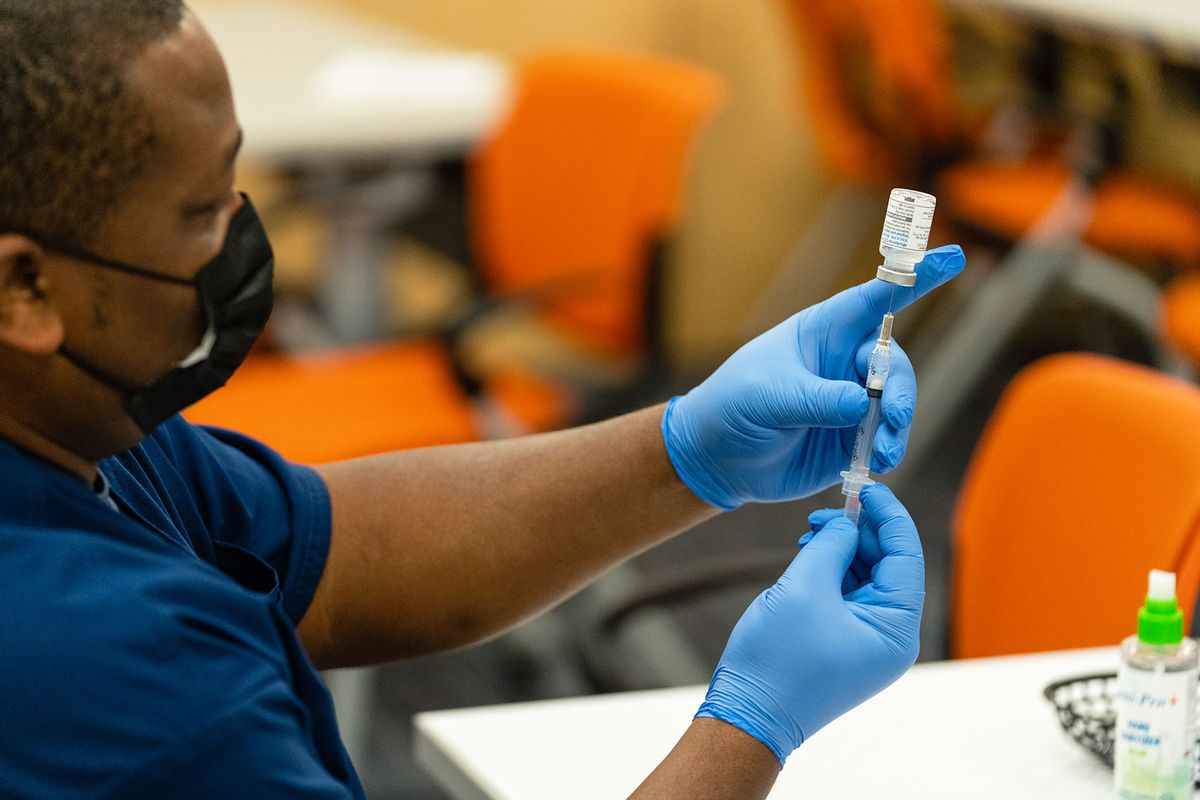Elon Musk, owner of Twitter, the website rebranding as X, is facing heated criticism for spreading misinformation on his platform again. On Tuesday, Musk incorrectly linked COVID-19 vaccines to college basketball star LeBron "Bronny" James Jr. suffering a cardiac arrest during practice. In a tweet, Musk claimed that "we cannot ascribe everything to the vaccine, but, by the same token, we cannot ascribe nothing. Myocarditis is a known side-effect. The only question is whether it is rare or common."
Because it has been repeatedly shown that this side effect is indeed rare, Twitter initially added a fact-check to the tweet. It was later removed, leaving the original misinformation standing without correction.
The CDC pointed out that there were only 635 cases of myocarditis diagnosed out of the 54.8 million doses of the mRNA vaccine given
Dr. Matthew Martinez, director of sports cardiology at the Atlantic Health System in New Jersey, told CNN in response to Musk's tweet, "Myocarditis is definitely a cause of sudden death in young athletes, but not a common threat." Martinez also pointed out that COVID infections themselves are far more likely to cause heart problems than myocarditis caused by COVID vaccines, which is an extremely rare side effect.
"Myocarditis occurred before COVID," Martinez added. "Myocarditis will occur after COVID."
Sports commentator Bob Costas, on the other hand, had harsh words for Musk, telling CNN's Abby D. Phillip that "we live in a world now where anything you don't want to be true, doesn't have to be true … And, anything you do want to be true, you don't need all that much evidence."
The truth is that COVID infections are quite dangerous to the human heart. A study last year by the Department of Veterans Affairs found that people reinfected with COVID were twice as likely to either die or have a heart attack as people only infected once. Similarly, a different study last year from the scientific journal Immunology revealed that the SARS-CoV-2 virus (which causes COVID) damages cardiac muscle.
By contrast, the 2022 CMAJ study cited by conspiracy theorists who insist myocarditis is a common side effect of the vaccine ignore that it also clearly says "although observed rates of myocarditis were higher than expected, the benefits of vaccination against SARS-CoV-2 in reducing the severity of COVID, hospital admission and deaths far outweigh the risk of developing myocarditis." (Emphasis added.)
Want more health and science stories in your inbox? Subscribe to Salon's weekly newsletter The Vulgar Scientist.
"The benefits of vaccination far outweigh the risk of developing myocarditis."
Indeed, in its coverage of Musk's comment, the conservative-leaning New York Post quoted the Centers for Disease Control and Prevention (CDC) which says "any health problem that happens after vaccination is considered an adverse event. An adverse event can be caused by the vaccine or can be caused by a coincidental event not related to the vaccine." Additionally, the CDC pointed out that there were only 635 cases of myocarditis diagnosed out of the 54.8 million doses of the mRNA vaccine given to children between the ages of 5 and 17 since May 2022.
This is not the first time that right-wing conspiracy theorists have exploited a high-profile athlete's heart incident to spread vaccine misinformation. In January, after professional football player Damar Hamlin was struck hard in the chest during a game and suffered cardiac arrest, right-wingers like former Newsmax host Grant Stinchfield and Turning Point USA head Charlie Kirk (who also promoted anti-vaccine conspiracy theories after the James incident) began denying that the cause was commotio cordis.
Commotio cordis, which is what most medical experts speculated had happened, is a condition in which the heart's rhythm is disrupted by a sharp blow to the region just above the chest during the T wave in a heartbeat. Then, there was Dominican professional basketball player Óscar Cabrera Adames, who was posthumously embraced by anti-vaccine advocates last month after he died during a heart stress test following a myocarditis diagnosis, one he blamed on the COVID vaccine.
Because nothing can be designed with 100 percent safety, it's true that vaccines can sometimes cause injuries — but the side effects of COVID vaccines are extremely rare and often manageable. On the other hand, the virus itself is far more often linked to numerous conditions from diabetes, schizophrenia, Parkinson's, the condition known as "long COVID" and of course, heart problems. It isn't just about risk but relative risk. And the vaccines are far, far safer than the disease.



Shares